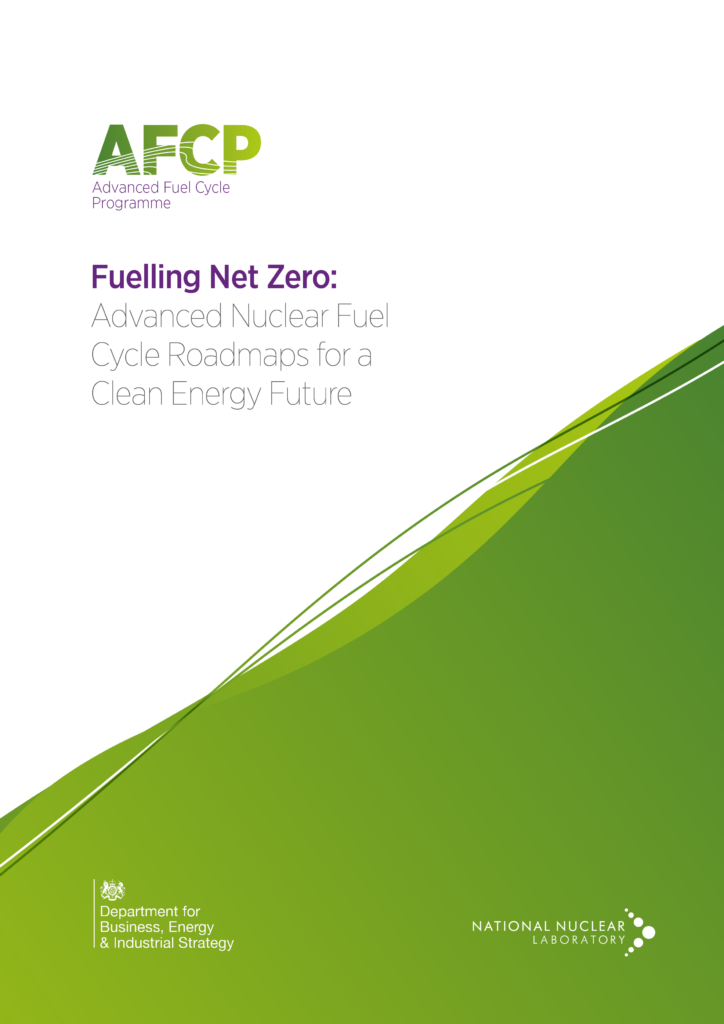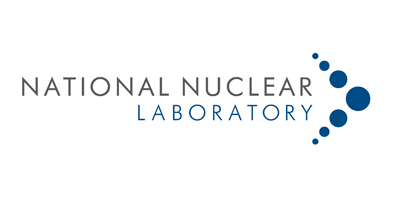AFCP publishes advanced fuel cycle roadmaps for a clean energy future
The National Nuclear Laboratory (NNL) has published a series of roadmaps that will enable UK policy makers and industry to plan for the future of nuclear in delivering net zero greenhouse gas emissions by 2050.
The roadmaps were developed through the Advanced Fuel Cycle Programme (AFCP), which is led by NNL in partnership with the Department for Business, Energy and Industrial Strategy (BEIS). The new report sets out a pathway to build upon the programme’s foundations, identifying opportunities for UK leadership in fuel cycle research, development and demonstration (RD&D).
Since its inception in 2019 as part of the £505m BEIS Energy Innovation Programme, AFCP has brought together world-renowned experts from NNL, industry and academia to investigate the advanced nuclear fuels and fuel cycles needed for a net zero future. Through technology roadmapping, this report provides new insights on where UK investment can proactively address a range of future societal needs.
The roadmaps identify opportunities to mature key technology areas, ultimately enabling the UK to deploy sustainable fuel cycles, realise significant economic benefits and achieve the delivery and maintenance of net zero.
Based on NNL’s ground-breaking modelling conducted by Energy Systems Catapult and LucidCatalyst – which explored the diverse, scalable and low-cost applications for nuclear in providing not just electricity but also heat, hydrogen and synthetic fuels – the roadmaps set out two main opportunity areas that the UK would need to evolve to meet its clean energy ambitions. These are:
- Advanced Fuels Development: making fuels for current and future reactors, which enables the maintenance and development of the UK’s indigenous fuel manufacturing capability and ensures that the fuels of the future are available to underpin UK nuclear ambitions;
- Advanced Fuel Cycle Technologies: making the fuels of the future by recycling used fuel, which provides substantial opportunities to reduce fuel cycle costs, wastes and environmental impacts as well as enhance safety, security and resistance to proliferation.
Both of these opportunity areas form the basis of a series of technology roadmaps, with the key enablers for each set out and detailed. The report highlights strategic planning, industry collaboration and government support in the policy, infrastructure and international arenas.
Gareth Headdock, Science and Technology & Government Programmes Director at NNL, said:
“Nuclear is already the single largest and most reliable zero-carbon energy source in the UK and advanced technologies hold even more potential for generating clean hydrogen, heat and electricity.
“The new roadmaps will enable government and industry to plan strategically for how we capitalise on the UK’s existing capability at the forefront of advanced fuel cycle innovation to deliver the key role identified for nuclear in the Energy White Paper and the Ten Point Plan for a Green Industrial Revolution.
“By taking a strategic approach to the fuel cycle, the UK will ensure it can achieve the nuclear ambitions set out in the government’s plans. The pathways described in the roadmaps will support the development and success of this future-focused approach.”
Download the report on AFCP’s website.

